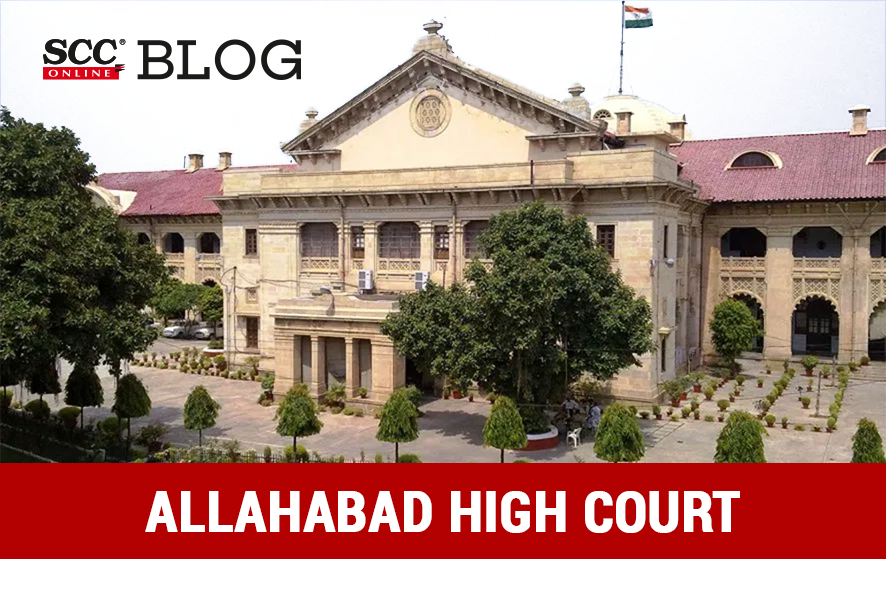Allahabad High Court: In an appeal filed challenging the impugned order, whereby the Insurance Ombudsman, (Western U.P. and Uttarakhand), has dismissed the complaint filed by the petitioner against rejection of her claim by the Senior Divisional Manager of the Life Insurance Corporation (‘LIC’) concerning the insurance policy, Kshitij Shailendra,J said that there is no good ground to interfere in the impugned orders, as mere payment of premium would not stop the insurance company from repudiating the claim as it is well within its rights to repudiate or reject the claim on the ground of non-disclosure of existence of previous policies at the time of taking any fresh policy.
The Court referred to Sections 106, 114, 115 of the Evidence Act, 1872 and Section 37 of the Contract Act, 1872 , and said that the contract of insurance between the deceased husband of the petitioner and Corporation would certainly bind his legal representatives, i.e. his wife (petitioner) , and proposal forms would certainly fall within the category of “contract of insurance” and, therefore, if, on account of any false declaration or concealment made by the deceased, the claim has been rejected, the petitioner, being a successor/representative of her husband, would not get any relief in the totality of the facts and circumstances of the present case.
The Court said that existence of two policies was in special knowledge of the insured deceased but only existence of one policy was disclosed in one form and the other policy was not disclosed in either of the proposal forms and, therefore, by invoking the principle of adverse inference and estoppel, respectively contained in Section 114(g) and Section 115 of the Act, 1872, no advantage of non-disclosure can be given to the petitioner so as to claim any relief regarding the two policies repudiated under the impugned orders.
Further, the Court said that mere payment of premium would not estop the insurance company from repudiating the claim as it is well within its rights to repudiate or reject the claim on the ground of non-disclosure of existence of previous policies at the time of taking any fresh policy as there are various factors, administrative, medical as well as financial which need to be analysed by LIC , while issuing any fresh insurance policy to a person who was already insured.
Placing reliance on Joel v. Law Union and Crown Insurance Company, [1908] 2 K.B. 431, the Court said that when an information on a specific aspect is asked in the proposal form, an assured is under a solemn obligation to make a true and full disclosure of the information on the subject which is within his knowledge. It is not for the proposer to determine whether the information sought for is material for the purpose of the policy or not. The obligation to disclose extends only to facts which are known to the applicant and not to what he ought to have known.
Moreover, the Court said that the term “material fact” is not defined in the Act, thus it has been explained by the courts as any fact which would influence the judgment of a prudent insurer in fixing the premium or determining whether he would like to accept the risk. Any fact which goes to the root of the contract of insurance and has a bearing on the risk involved would be “material”.
Further, the Court said that the declaration made by the insured at the bottom of the proposal form and signed by him contains clear stipulation to the effect that he has not withheld any information and that the statements made by him in the said declaration shall be the basis of ‘contract of insurance’ between him and the Corporation and, if any, untrue averment be contained therein, the contract shall be absolutely null and void and the money which shall have been paid in respect thereof, shall stand forfeited.
Thus, the Court dismissed the petition.
[Parul Agarwal v LIC, 2023 SCC OnLine All 125, decided on 03-04-2023]
Advocates who appeared in this case :
Counsel for Petitioner: Advocate Neeraj Tripathi, Advocate Abhinav Ojha, Advocate Ashutosh Srivastava, Advocate Rajendra Pratap Singh, Advocate Rakesh Chandra Pathak;
Counsel for Respondent: Advocate Manish Goyal, Advocate P.Misra, Advocate Udai Shanker Mishra.






